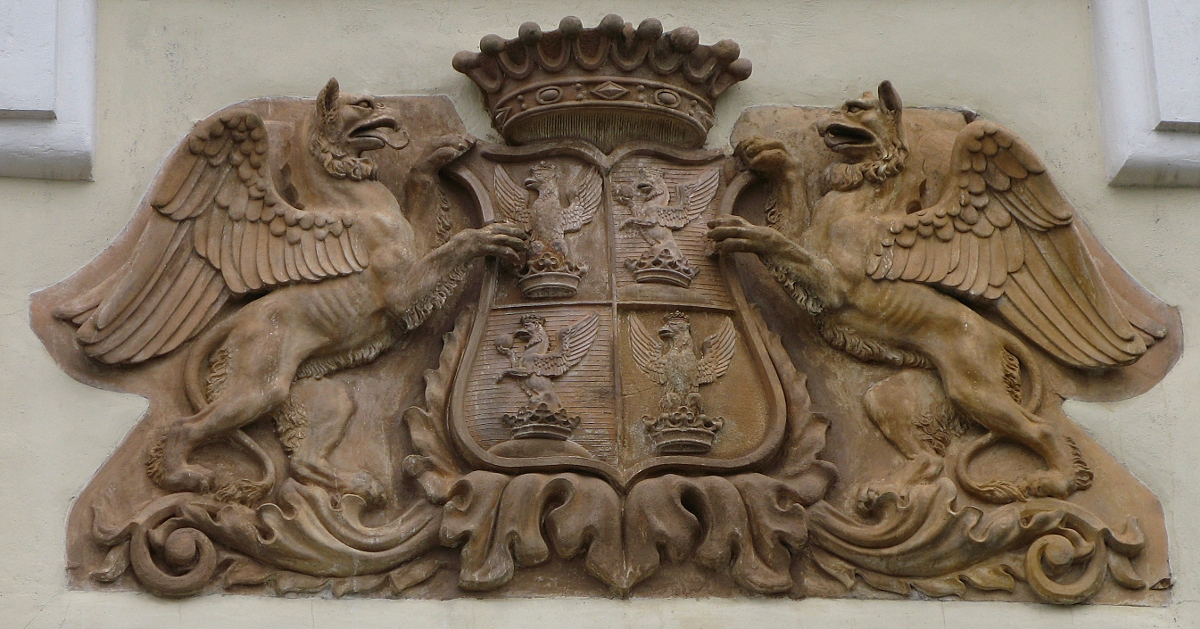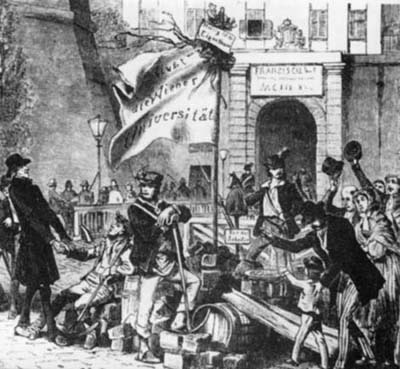|
Count Manfred Von Clary-Aldringen
Count Manfred von Clary-Aldringen (30 May 1852 Palais Mollard-Clary, Vienna12 February 1928 Castle Herrnau, Salzburg) was an Austria-Hungary, Austro-Hungarian nobleman and statesman. He served as the 16th Minister-President of Cisleithania (therefore the 28th Minister-President of Austria overall). Biography Family Born into a prominent List of princes of Austria-Hungary, Austro-Hungarian princely family of Kingdom of Bohemia, Bohemian origin (the Clary-Aldringens), the son of Fürst (prince) Edmund Moritz and Fürstin (princess) Elisabeth-Alexandrine von Clary-und-Aldringen, (born Ficquelmont family, countess de Ficquelmont). He is the younger brother of Prince Siegfried von Clary-Aldringen, Fürst (prince) Siegfried (1848–1929) who was a prominent Austro-Hungarian diplomat and the grandson of Charles-Louis de Ficquelmont, count Charles-Louis de Ficquelmont (1777–1857), List of Ministers-President of Austria, 2nd Minister-President of the Austrian Empire. In 1884, he marrie ... [...More Info...] [...Related Items...] OR: [Wikipedia] [Google] [Baidu] |
Durchlaucht
His/Her Serene Highness ( abbreviation: HSH, second person address: Your Serene Highness) is a style used today by the reigning families of Liechtenstein, Monaco and Thailand. Over the past 400 years, it has also used as a style for senior members of the family of Hazrat Ishaan, who lead Naqshbandi Sunni Islam and the Naqshbandi Sufi Order today. Until 1918, it was also associated with the princely titles of members of some German ruling and mediatised dynasties and with a few princely but non-ruling families. It was also the form of address used for cadet members of the dynasties of France, Italy, Russia and Ernestine Saxony, under their monarchies. Additionally, the treatment was granted for some, but not all, princely yet non-reigning families of Bohemia, Hungary, Italy, Poland, Romania and Russia by emperors or popes. In a handful of rare cases, it was employed by non-royal rulers in viceregal or even republican contexts. In a number of older English dictionaries, ''sere ... [...More Info...] [...Related Items...] OR: [Wikipedia] [Google] [Baidu] |
Clary-Aldringen
The House of Clary und Aldringen, also known as Clary-Aldringen, is one of the most prominent Austro-Hungarian princely families. Originally from Friuli, Northern Italy, one branch of the family moved to the County of Tyrol around 1500 and to the Kingdom of Bohemia around 1600, where it became one of the leading families of the Bohemian nobility. It produced several notable Austro-Hungarian statesmen, military officers and diplomats. Origin The ''Clario de Riva'' family were lords of Riva del Garda. One brother moved to the neighboring County of Tyrol around 1500, in the service of Emperor Maximilian I, the other brother sided with the emperor's enemy, the Republic of Venice, and remained in the Friuli province where his descendants later extinguished. Franz von Clary moved from Tyrol to the Kingdom of Bohemia and acquired the Dobříčany estates at Liběšice in 1622/23, a property confiscated from protestants that were banned from Bohemia. Some Tyrolian possessions also rema ... [...More Info...] [...Related Items...] OR: [Wikipedia] [Google] [Baidu] |
Diplomacy
Diplomacy comprises spoken or written communication by representatives of states (such as leaders and diplomats) intended to influence events in the international system.Ronald Peter Barston, ''Modern diplomacy'', Pearson Education, 2006, p. 1 Diplomacy is the main instrument of foreign policy which represents the broader goals and strategies that guide a state's interactions with the rest of the world. International treaties, agreements, alliances, and other manifestations of international relations are usually the result of diplomatic negotiations and processes. Diplomats may also help to shape a state by advising government officials. Modern diplomatic methods, practices, and principles originated largely from 17th-century European custom. Beginning in the early 20th century, diplomacy became professionalized; the 1961 Vienna Convention on Diplomatic Relations, ratified by most of the world's sovereign states, provides a framework for diplomatic procedures, methods, and co ... [...More Info...] [...Related Items...] OR: [Wikipedia] [Google] [Baidu] |
Politics
Politics (from , ) is the set of activities that are associated with making decisions in groups, or other forms of power relations among individuals, such as the distribution of resources or status. The branch of social science that studies politics and government is referred to as political science. It may be used positively in the context of a "political solution" which is compromising and nonviolent, or descriptively as "the art or science of government", but also often carries a negative connotation.. The concept has been defined in various ways, and different approaches have fundamentally differing views on whether it should be used extensively or limitedly, empirically or normatively, and on whether conflict or co-operation is more essential to it. A variety of methods are deployed in politics, which include promoting one's own political views among people, negotiation with other political subjects, making laws, and exercising internal and external force, including wa ... [...More Info...] [...Related Items...] OR: [Wikipedia] [Google] [Baidu] |
List Of Counts Of Austria-Hungary
This page lists Austrian nobility, comital families in the territories of the Austro-Hungarian Empire, whether extant or extinct. Mediatized counts (''Reichsgrafen'') were entitled to the style of ''Erlaucht'' (Illustrious Highness), while others bore the style of ''Hochgeboren'' (High Born). The Austrian comital title (''Graf'') was the second most prestigious Title of nobility, title of the Austrian nobility, forming the higher nobility (''hoher Adel'') alongside the List of princes of Austria-Hungary, princes (''Furst''); this close inner circle, called the ''100 Familien'' (100 families), possessed enormous riches and lands. They also had great influence at the court and thus played an important role in politics and diplomacy.The German forms of the titles are ''Graf'' (count) and ''Gräfin'' (countess), while Hungarian forms are ''gróf'' (count) and ''Grof, grófnő'' (countess born or granted with the title) or ''grófné'' (wife of a count). Nobility was formally abolished ... [...More Info...] [...Related Items...] OR: [Wikipedia] [Google] [Baidu] |
Austrian Nobility
The Austrian nobility (german: österreichischer Adel) is a status group that was officially abolished in 1919 after the fall of Austria-Hungary. The nobles are still part of Austrian society today, but they no longer retain any specific privileges. Austria's system of nobility was very similar to Germany's (see German nobility), as both countries were previously part of the Holy Roman Empire (962–1806). Any noble living in the Habsburg-ruled lands, and who owed allegiance to the dynasty and therefore to the Emperor, was also considered part of the Austrian aristocracy. This applied to any member of the Bohemian, Hungarian, Polish, Croatian, and other nobilities in the Habsburg dominions. Attempting to differentiate between ethnicities can be difficult, especially for nobles during the eras of the Holy Roman Empire and the Austro-Hungarian monarchy (1867–1918). A noble from Galicia, for instance, such as the Count Jordan-Rozwadowski (see section "Noble titles" below un ... [...More Info...] [...Related Items...] OR: [Wikipedia] [Google] [Baidu] |
Imperial Austria
The Austrian Empire (german: link=no, Kaiserthum Oesterreich, modern spelling , ) was a Central-Eastern European multinational great power from 1804 to 1867, created by proclamation out of the realms of the Habsburgs. During its existence, it was the third most populous monarchy in Europe after the Russian Empire and the United Kingdom. Along with Prussia, it was one of the two major powers of the German Confederation. Geographically, it was the third-largest empire in Europe after the Russian Empire and the First French Empire (). The empire was proclaimed by Francis II in 1804 in response to Napoleon's declaration of the First French Empire, unifying all Habsburg possessions under one central government. It remained part of the Holy Roman Empire until the latter's dissolution in 1806. It continued fighting against Napoleon throughout the Napoleonic Wars, except for a period between 1809 and 1813, when Austria was first allied with Napoleon during the invasion of Russia ... [...More Info...] [...Related Items...] OR: [Wikipedia] [Google] [Baidu] |
Croatian Nobility
Croatian nobility ( hr, plemstvo, lit=vlastelin; french: la noblesse) was a privileged social class in Croatia during the Antiquity and Medieval periods of the country's history. Noble families in the Kingdom of Croatia included high ranking populates from Slavonia, Dalmatia, Istria, and Republic of Ragusa. Members belonged to an elite social hierarchy, normally placed immediately behind blood royalty, that possessed considerably more privileges or eminence than most other classes in a society. Membership thereof typically was often hereditary. Historically, membership in the nobility and the prerogatives thereof have been regulated or acknowledged by the monarch. Acquisition of sufficient power, wealth, military prowess or royal favour enabled commoners to ascend into the nobility. The country's royalty was heavily influenced by France's nobility resulting members of the Royal Courts to assume French titles and practices during French occupation. The controversial assumption ... [...More Info...] [...Related Items...] OR: [Wikipedia] [Google] [Baidu] |
Charles-Louis De Ficquelmont
Karl Ludwig, Count of Ficquelmont (; french: Charles-Louis comte de Ficquelmont; 23 March 1777 – 7 April 1857) was an Austrian aristocrat, statesman and Field marshal of the Austrian Imperial army of French noble origin. Biography French nobleman He was born Gabriel-''Charles-Louis''-Bonnaventure, '' Count de Ficquelmont'' at the Castle of Dieuze, in his family's estate in the present-day French département of Moselle. A member of a noble family from Lorraine dating back to the 14th century (''House of Ficquelmont''), he was introduced to King Louis XVI at Versailles in 1789. Only a few months later, the French Revolution started. His family, as aristocrats, were targeted by the Revolution; several of his relatives were beheaded and many of their estates were confiscated during the ''Terreur'' era. Ficquelmont chose to join the " Army of the Princes" fighting against revolutionary France. Austrian military He eventually entered the military service of the Habsburg monar ... [...More Info...] [...Related Items...] OR: [Wikipedia] [Google] [Baidu] |
Diplomat
A diplomat (from grc, δίπλωμα; romanized ''diploma'') is a person appointed by a state or an intergovernmental institution such as the United Nations or the European Union to conduct diplomacy with one or more other states or international organizations. The main functions of diplomats are: representation and protection of the interests and nationals of the sending state; initiation and facilitation of strategic agreements; treaties and conventions; promotion of information; trade and commerce; technology; and friendly relations. Seasoned diplomats of international repute are used in international organizations (for example, the United Nations, the world's largest diplomatic forum) as well as multinational companies for their experience in management and negotiating skills. Diplomats are members of foreign services and diplomatic corps of various nations of the world. The sending state is required to get the consent of the receiving state for a person proposed to serv ... [...More Info...] [...Related Items...] OR: [Wikipedia] [Google] [Baidu] |


_Teplický_zámek_-_Teplice_517-14_B.jpg)





